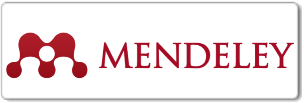Policy & Guidelines
Publication Ethics
Publication Ethics
The following are the ethical provisions for the Hafizah Journal of Innovation and Community Service (HJICS), published by Junior Management Indonesia in collaboration with several universities. These provisions are adapted from the COPE Code of Conduct, which is available on the official COPE (Committee on Publication Ethics) website.
HJICS editors are committed to implementing all publishing managerial procedures to realize an objective intellectual process. Editors and reviewers evaluate manuscripts fairly without considering the author's ethnicity, religion, race, or group background.
Each submitted manuscript will be checked first to ensure compliance with the scope of the HJICS journal and undergo plagiarism checking before further processing.
Writer's Duties
1. Responsible for ensuring the originality and novelty of the submitted manuscript.
2. Do not reproduce work previously published in other journals.
3. Do not submit manuscripts being reviewed or processed by the HJICS journal to other journals simultaneously.
4. It is only permissible to publish a manuscript after receiving a formal rejection from the HJICS Journal or a request for retraction of the manuscript has been officially accepted by the HJICS Journal.
5. You must inform the Editor or Journal Manager if there are data errors in the published manuscript so that the article can be corrected or retracted immediately.
6. Must make a significant contribution and be held responsible for deficiencies in the work produced.
Duties of Bestari Partner/Reviewer
1. Let go of all personal interests before agreeing to review the manuscript.
2. Has the right to refuse to review the manuscript for insufficient knowledge or to avoid conflicts of interest.
3. Review all manuscripts objectively, fairly, and professionally.
4. Disclose all ethical violations found and report them to the Editor for follow-up.
5. Must ensure the manuscript's originality and be alert to acts of plagiarism and exaggerated publications.
6. Discussing the content of the manuscript without permission is not permitted.
7. Adhere to the time allocated for the review process. Requests for extensions to review submissions are at the discretion of the Editor.
Editor's Duties
1. Actively contribute to the development and improvement of the journal.
2. Act as an ambassador for the HJICS Journal.
3. Continuously support and publish the HJICS Journal.
4. Review all assigned work.
Duties of Editor-in-Chief
1. Evaluate the manuscript fairly and solely on intellectual merit.
2. Ensure confidentiality of the manuscript and do not disclose any information about the manuscript to anyone other than those involved in the publication process.
3. Has responsibility for determining articles and publication times.
4. Actively seek the views of Editors, Reviewers/Bestary Partners, and authors regarding how to improve/increase the image and visibility of the journal.
5. Provide clear instructions to contributors regarding the manuscript submission process and what is expected from the author.
6. Ensure the selection/detection of appropriate reviewers/partners for the review process.
Plagiarism Checking
Every published manuscript is first checked for plagiarism using Plagiarism software.
Reference Management
It is recommended that articles submitted to the HJICS Journal use a Reference Manager application such as Mendeley, Zotero, or EndNote.
Article Cancellation
Authors are not permitted to cancel or withdraw a manuscript that has been submitted because canceling a manuscript results in a waste of time and energy that has been devoted by editors and reviewers, as well as funds that the journal management has invested.
Suppose the author still wants to cancel or withdraw the manuscript while the article is peer-reviewing. In that case, the author must pay a fine of IDR 300,000.00 (three hundred thousand rupiah) per manuscript as compensation to the journal management. Cancellation/withdrawal of a submitted manuscript is considered unethical and contrary to the principles of professionalism.
Suppose a manuscript is canceled or withdrawn because another journal has accepted the article. In that case, the author will be subject to a fine of IDR 1,000,000.00 (one million rupiah) per manuscript. The cancellation/withdrawal process can only be carried out after the journal manager pays the fine. If the author refuses to pay the fine, the author and his affiliates will be prohibited from submitting manuscripts to HJICS journals.
Authors proven to have double-published will be reported to the Anjani website and blocked from the HJICS journal.














